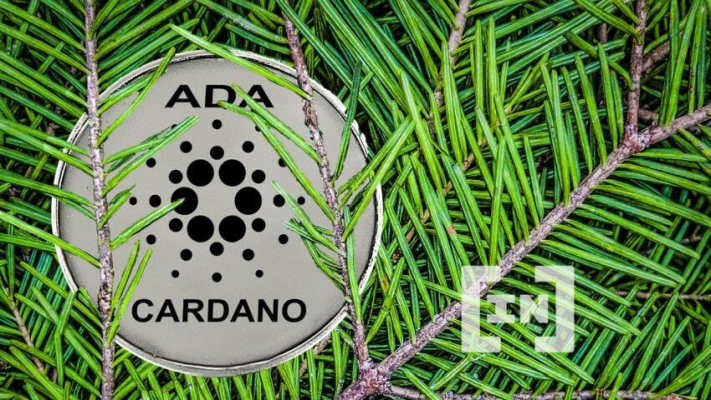Cardano Foundation Outlines Core Focus Areas for 2022!
3/20/2023, 06:54 PM

Cardano is a third-generation blockchain platform that aims to provide a more secure, sustainable, and scalable infrastructure for decentralized applications and digital assets. Launched in 2017, Cardano is the brainchild of Charles Hoskinson, a co-founder of Ethereum, who wanted to address some of the scalability and sustainability issues faced by first-generation blockchains like Bitcoin and second-generation blockchains like Ethereum.
Cardano's architecture is based on a proof-of-stake consensus algorithm called Ouroboros, which is designed to be more energy-efficient and secure than the proof-of-work algorithm used by Bitcoin. Cardano also uses a layered architecture that separates the settlement layer (for value transfer) from the computation layer (for smart contracts and applications), which allows for greater flexibility and scalability.
The Cardano ecosystem comprises three main components: Cardano itself, the Cardano Foundation, and IOHK (Input Output Hong Kong), the development company behind Cardano. Each of these entities has a specific role to play in the development and governance of the Cardano platform.
Cardano's development roadmap is divided into five phases: Byron, Shelley, Goguen, Basho, and Voltaire. Byron was the initial phase, focused on building the basic infrastructure for Cardano. Shelley, which was launched in 2020, is the current phase and focuses on decentralization and staking. Goguen, which is expected to launch in 2022, will introduce smart contracts and enable the development of decentralized applications on Cardano. Basho and Voltaire will focus on scalability and governance, respectively.
Cardano has several advantages over other blockchain platforms. Its layered architecture allows for greater flexibility and scalability, while its proof-of-stake consensus algorithm is more energy-efficient and secure than proof-of-work. Cardano also has a strong focus on governance and community participation, with a decentralized decision-making process and a treasury system to fund development and innovation.
However, there are also some potential risks and challenges facing Cardano. One of the main risks is competition from other blockchain platforms, such as Ethereum, which has a larger developer community and a more established ecosystem. Another risk is regulatory uncertainty, as governments around the world grapple with how to regulate cryptocurrencies and blockchain technology.
Bitcoin has had a significant influence on the development of Cardano and the wider blockchain ecosystem. Bitcoin paved the way for the development of blockchain technology and demonstrated the potential for decentralized, peer-to-peer systems. However, Cardano aims to address some of the scalability and sustainability issues faced by Bitcoin, and its proof-of-stake consensus algorithm is seen as a more energy-efficient and secure alternative to proof-of-work.
In conclusion, Cardano is a promising blockchain platform that aims to provide a more secure, sustainable, and scalable infrastructure for decentralized applications and digital assets. Its layered architecture, proof-of-stake consensus algorithm, and strong focus on governance and community participation set it apart from other blockchain platforms. However, there are also potential risks and challenges facing Cardano, including competition from other platforms and regulatory uncertainty.
More about Cardano?
Cardano's architecture is based on a proof-of-stake consensus algorithm called Ouroboros, which is designed to be more energy-efficient and secure than the proof-of-work algorithm used by Bitcoin. Cardano also uses a layered architecture that separates the settlement layer (for value transfer) from the computation layer (for smart contracts and applications), which allows for greater flexibility and scalability.
The Cardano ecosystem comprises three main components: Cardano itself, the Cardano Foundation, and IOHK (Input Output Hong Kong), the development company behind Cardano. Each of these entities has a specific role to play in the development and governance of the Cardano platform.
Cardano's development roadmap is divided into five phases: Byron, Shelley, Goguen, Basho, and Voltaire. Byron was the initial phase, focused on building the basic infrastructure for Cardano. Shelley, which was launched in 2020, is the current phase and focuses on decentralization and staking. Goguen, which is expected to launch in 2022, will introduce smart contracts and enable the development of decentralized applications on Cardano. Basho and Voltaire will focus on scalability and governance, respectively.
Cardano has several advantages over other blockchain platforms. Its layered architecture allows for greater flexibility and scalability, while its proof-of-stake consensus algorithm is more energy-efficient and secure than proof-of-work. Cardano also has a strong focus on governance and community participation, with a decentralized decision-making process and a treasury system to fund development and innovation.
However, there are also some potential risks and challenges facing Cardano. One of the main risks is competition from other blockchain platforms, such as Ethereum, which has a larger developer community and a more established ecosystem. Another risk is regulatory uncertainty, as governments around the world grapple with how to regulate cryptocurrencies and blockchain technology.
Bitcoin has had a significant influence on the development of Cardano and the wider blockchain ecosystem. Bitcoin paved the way for the development of blockchain technology and demonstrated the potential for decentralized, peer-to-peer systems. However, Cardano aims to address some of the scalability and sustainability issues faced by Bitcoin, and its proof-of-stake consensus algorithm is seen as a more energy-efficient and secure alternative to proof-of-work.
In conclusion, Cardano is a promising blockchain platform that aims to provide a more secure, sustainable, and scalable infrastructure for decentralized applications and digital assets. Its layered architecture, proof-of-stake consensus algorithm, and strong focus on governance and community participation set it apart from other blockchain platforms. However, there are also potential risks and challenges facing Cardano, including competition from other platforms and regulatory uncertainty.
More about Cardano?